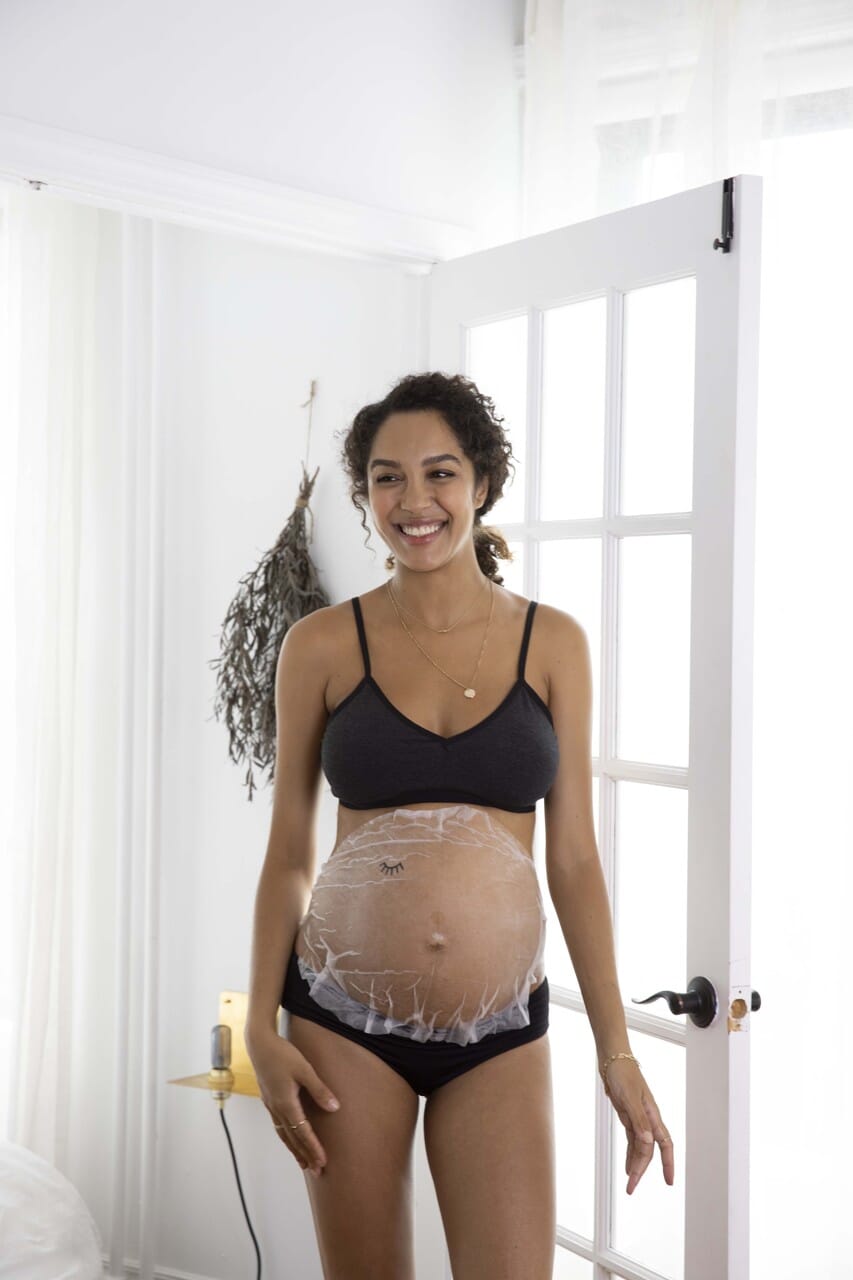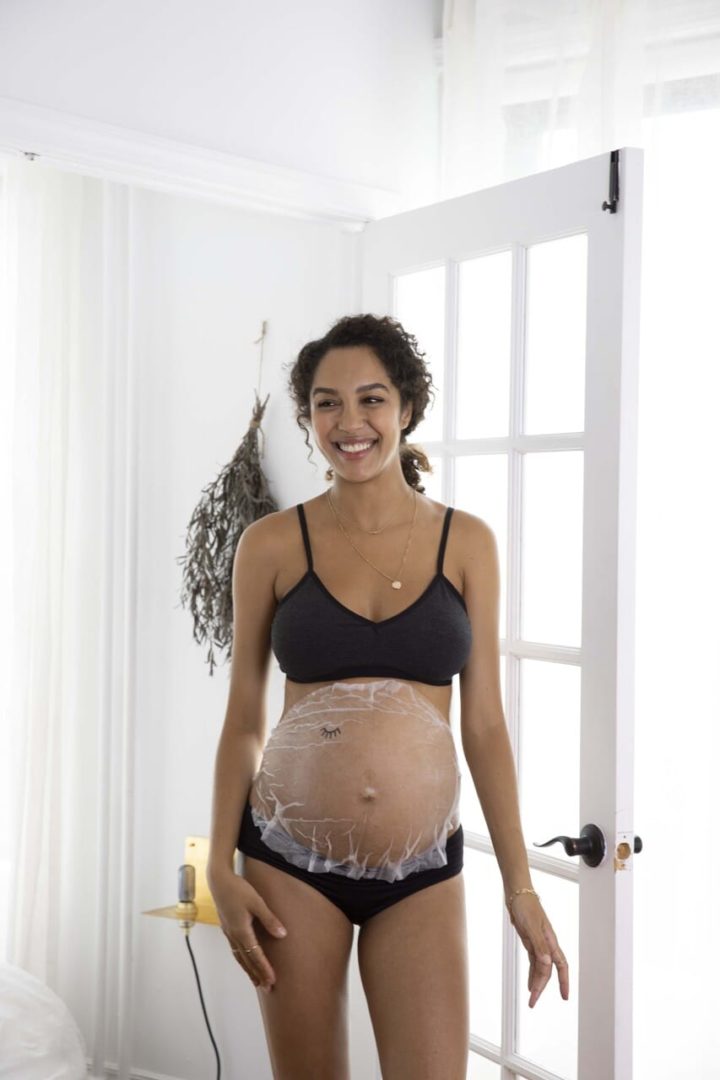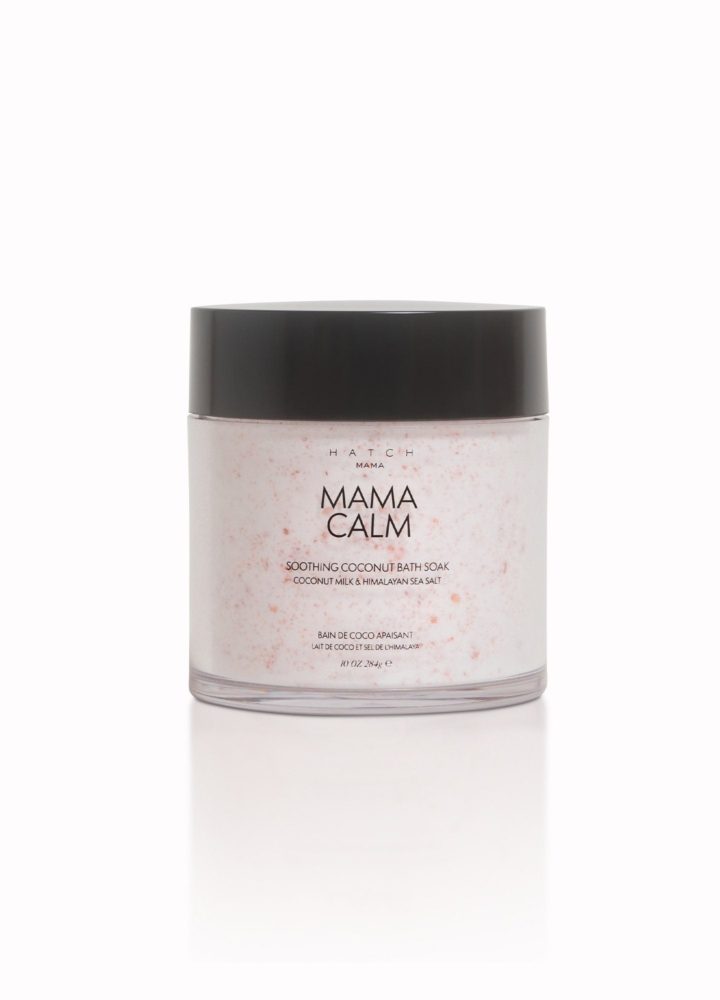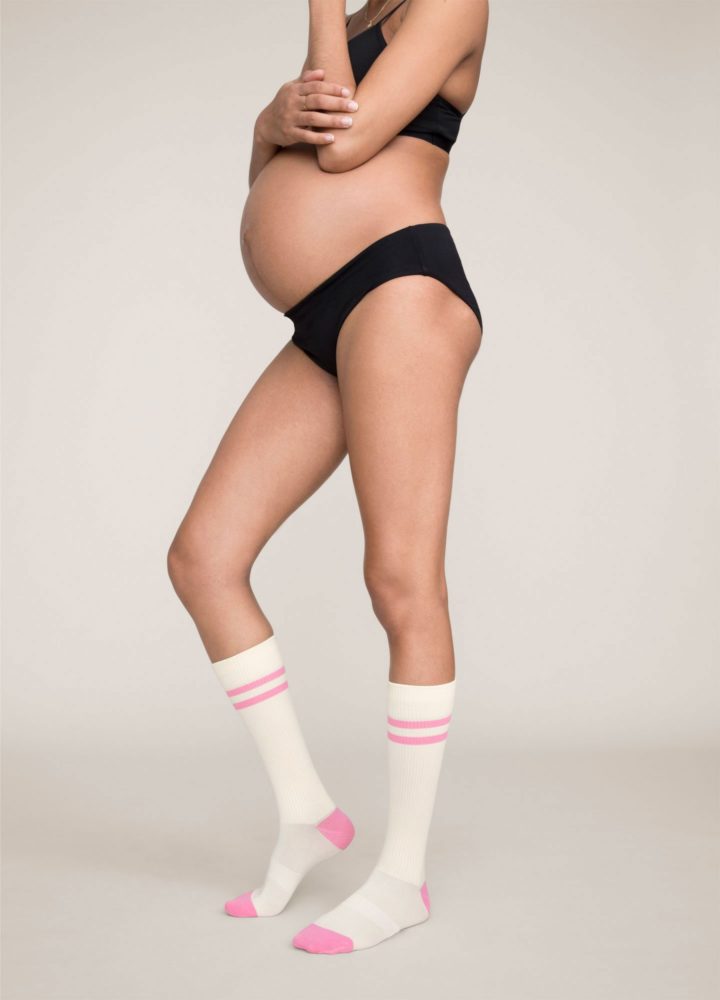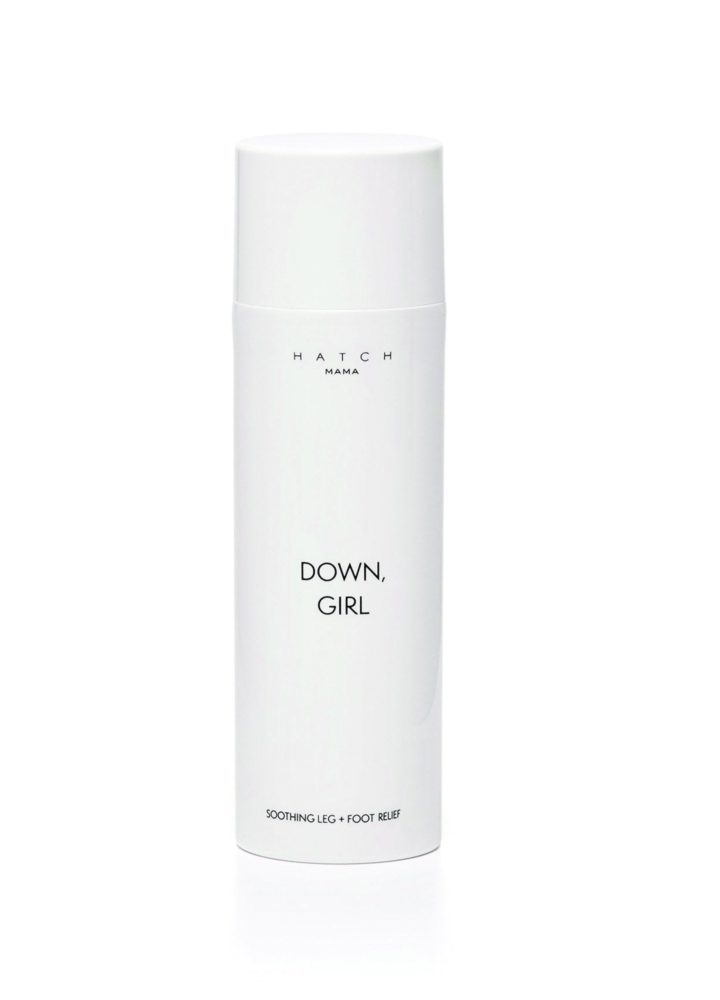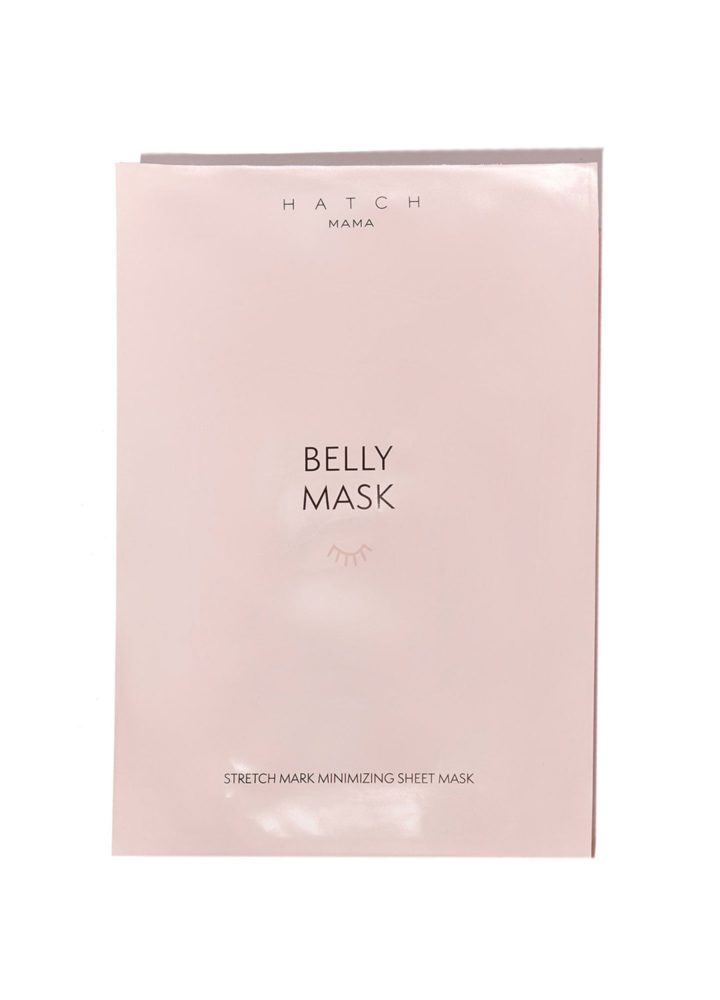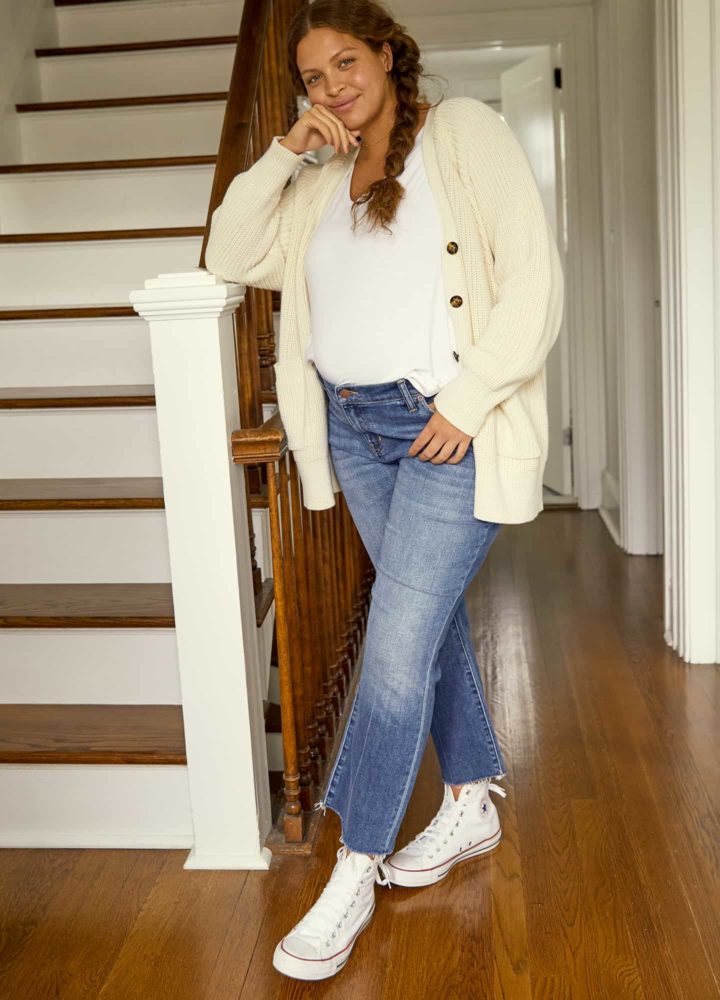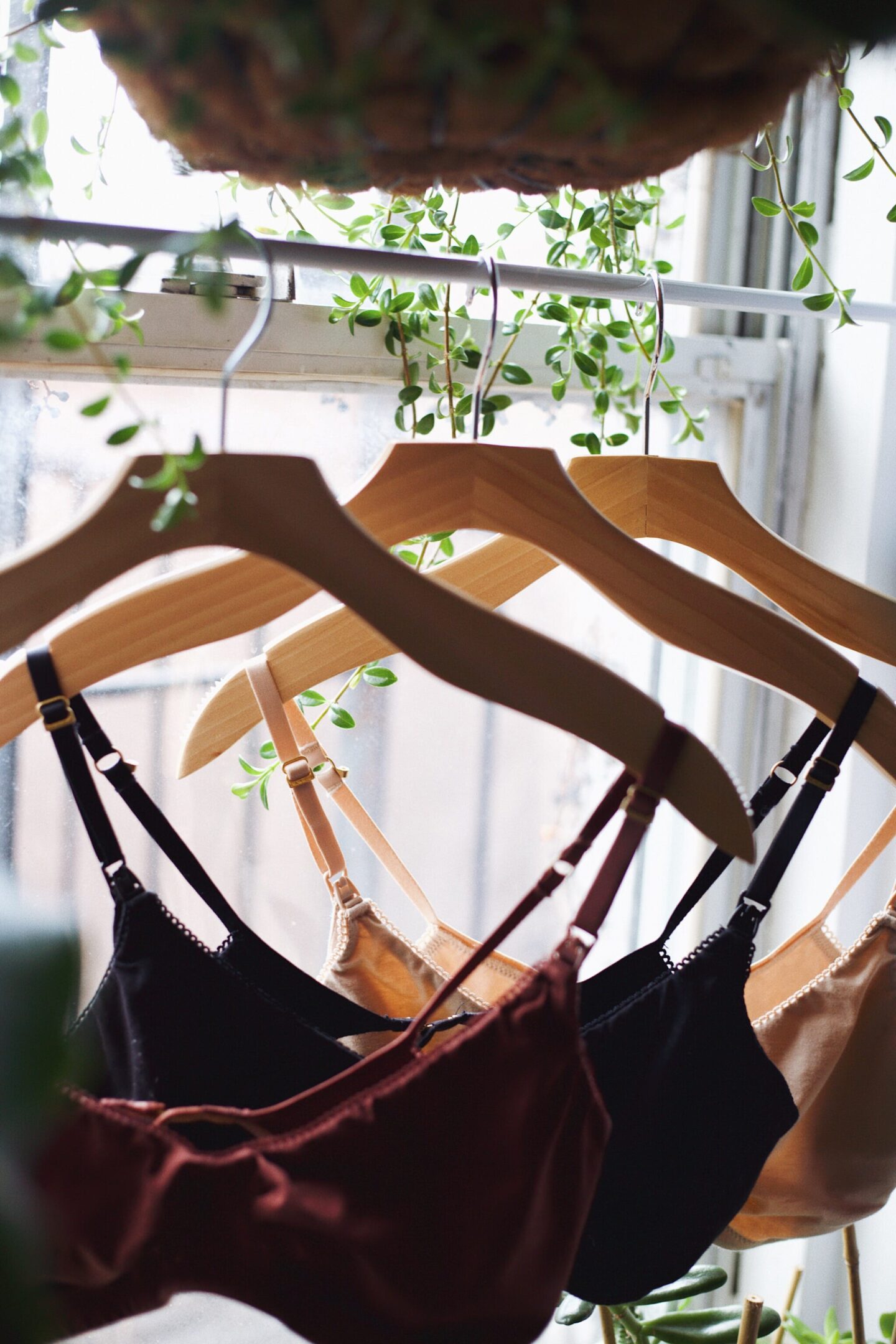Crazy body changes are par for the course during pregnancy. By your due date, you’ll practically be an expert in what to expect when you’re expecting: swollen feet and ankles, stretch marks everywhere, and… changing belly buttons?
That’s right: During pregnancy, many women go from having an innie belly button to an outie. Why that happens and if it ever returns to normal might be a mystery right now, but you’ve come to the right place. We’ve got all the answers to your questions about belly button changes (and more) during pregnancy below.
Why Do Some Women’s Belly Buttons Pop Out During Pregnancy?
The reason for your protruding navel is the same reason you suddenly need to level up to maternity jeans – your expanding belly due to a growing baby.
As your little one grows, they start to put pressure on your abdominal wall, until one day, your belly button simply pops out because of an expanding uterus. Although this can be startling, it’s nothing to worry about. Popped-out belly buttons are harmless and usually go back to normal a few months after you give birth.
Trying to predict whether your belly button will pop or not is like trying to predict what your baby will look like — it’s a combination of genetics and luck. Every woman carries her pregnancy a little differently, and there’s no apparent rhyme or reason as to why some women get outies during pregnancy and others don’t.
Is Belly Button Popping Painful?
If you’re nervous about this potential pregnancy change, don’t be — belly button popping is usually completely painless! Although, you might experience irritation as your newfound outie rubs against clothing, especially if you have a belly button piercing.
In that case, you can try covering the bump with a bandage or belly band or dressing in looser clothing (hello, that maternity dress you’ve been eyeing!). Opting for one of these options can help soothe abdominal pressure and belly button pain.
If you do feel an aching near your belly button or pelvic pain when you bend over and sneeze, gently feel the area of your abdomen around your navel. If you notice a soft lump or protruding mass, it’s possible you may be experiencing something beyond the normal belly button changes (such as an umbilical hernia). Contact your healthcare provider to discuss the next steps.
Umbilical hernias are rare, usually painless, and often can be left alone until they recede after delivery.
However, you should definitely let your OB-GYN know if you think you have a hernia or if you experience any unexpected pain or bulging near your navel. They’ll be able to assess the situation and relieve any worries you may have. Your doc can make any adjustments necessary to help you have the stress-free pregnancy you deserve.
How Can I Take Care of My Bump During Pregnancy?
Taking care of your popped-out belly button is merely one way you can practice bump care during pregnancy.
Just like you use skincare on your face, you can also use it on your belly. Try using an exfoliating scrub to slough away dead skin cells and imperfections, or apply a belly mask (like a face mask!) to smooth any stretch marks.
There are a number of activities you can do to bond with your bump (and the baby inside) during pregnancy. Experts say that singing to your bump, talking to your bump, and reading out loud can all be soothing to the baby, who will quickly learn to recognize the sound and vibrations of your voice.
You can try meditation, prenatal yoga, or long walks to release those endorphins that are good for both you AND baby. Generally, anything that makes you feel relaxed and happy will help your little babe feel the same.
Plus, pregnancy can sometimes be stressful, and light exercise is a great way to let loose and have fun while waiting for your little one to arrive.
Other Body Changes To Expect During Pregnancy
Pregnancy can change a lot of parts of your body, even things that seemingly have no connection to growing a baby. Your belly button that was once an innie is now an outie – so what other not-so-welcome things can you expect as a first-time (or veteran) mother?
Heartburn
Heartburn is an unpleasant but super common experience among pregnant people. During the first trimester, your body ramps up the production of progesterone, which helps relax your abdominal muscles so they can stretch out to accommodate your growing baby bump.
But progesterone doesn’t discriminate — it also relaxes other smooth muscles in your body, including your lower esophageal sphincter, which seals off your stomach from your esophagus. Normally this muscle prevents stomach acid from climbing up into your throat, but when it’s relaxed during pregnancy, it doesn’t do such a great job.
So, if you find yourself experiencing unexpected heartburn during pregnancy, don’t stress – it most likely has to do with the progesterone running rampant through your body. And, of course, don’t be afraid to talk to your doctor or healthcare professional about what you’re experiencing. After all, peace of mind is EVERYTHING during pregnancy.
Nosebleeds
If compression socks and calming foot lotion have become your holy grail during pregnancy, you might find yourself becoming prone to nosebleeds as well. It might sound bizarre, but the same reason why your feet and ankles are constantly swollen can cause the fragile blood vessels in your nose to rupture more easily: higher blood volume.
During pregnancy, your blood volume nearly doubles in order to support the oxygen and nutrient needs of both you and baby. All that extra blood tends to pool in your ankles and feet and can cause unexpected nosebleeds.
Nosebleeds can be alarming, but most of the time, they’re nothing to worry about. Typically, they can be stopped in a few minutes with pressure from a wad of tissue.
If this sounds like the story of your life right now, try sleeping next to a humidifier and drinking lots of water to stay hydrated. Dry conditions can make nosebleeds worse, so adding some humidity and hydration to your environment may help you feel more comfortable.
Changing Shoe Size
Speaking of swollen feet, many women go up half a shoe size (or more) during pregnancy. Thanks to that extra blood volume we talked about, it’s super common to have swollen feet and ankles during pregnancy, especially at the end of the day.
Don’t be shocked if the shoes you wear every day suddenly feel tight and constricting – this is a pretty typical pregnancy symptom, and in most cases, your shoe size will return to normal soon after giving birth. Find shoes that fit you comfortably in the meantime!
Skin Changes
You thought you were rid of acne forever, but then you got pregnant, and all of a sudden, you have more pimples than you did in middle school. What gives?
Acne flare-ups during pregnancy might be miserable, but they’re normal (and treatable) parts of pregnancy. It’s no secret that hormones rule basically everything in your body during pregnancy, so it shouldn’t be surprising that they’re responsible for your latest unexpected breakout, too.
In fact, thanks to hormone imbalances, nearly half of all pregnant women experience acne at some point during their pregnancy.
Acne can actually be a good sign that your hormones are doing their job to get your body ready for baby! It might not make you feel better in the moment, but knowing that your body is doing what it needs to do may help ease some of your anxiety.
If pregnancy breakouts are stressing you out and taking a toll on your self-esteem, don’t be afraid to talk to a dermatologist or doctor about possible solutions.
Most pregnancy acne goes away soon after your baby is born, but there’s no need to grimace and bear it in the meantime. Your doctor will be able to provide some pregnancy-safe solutions and help you figure out how to manage your unexpected breakouts until your little one arrives.
Belly Buttons and Nosebleeds and Acne, Oh, My
Pregnancy can be overwhelming. Not only are you preparing to raise a little human, but your body is doing all sorts of unusual things, from popping your belly button out to breaking out like it’s seventh grade all over again.
It’s normal to feel stressed about these changes, but try to remember that they’re completely normal parts of pregnancy.
Don’t be afraid to rely on your support system to manage these changes or talk to your doctor about any concerns you may have. At the end of the day, your overnight outie is just a sign that your body is doing what it’s supposed to do: preparing to have a baby!
Sources:
